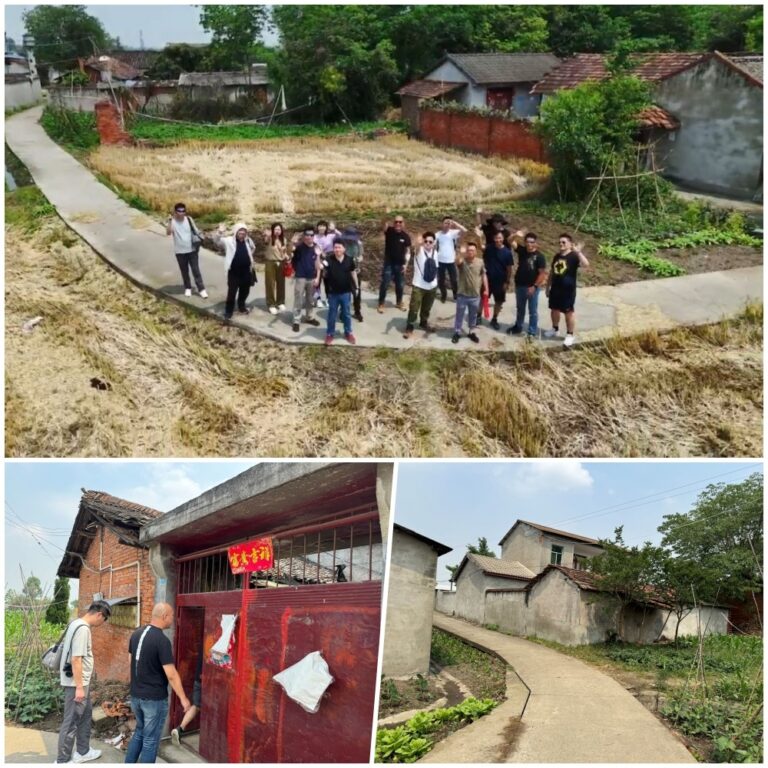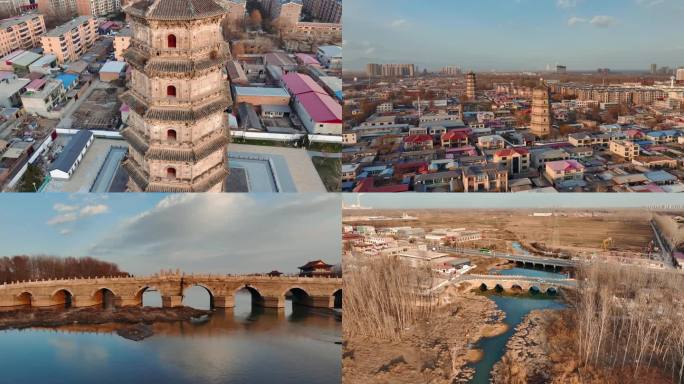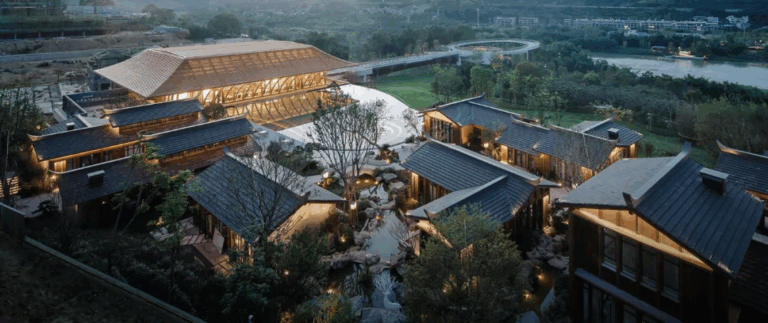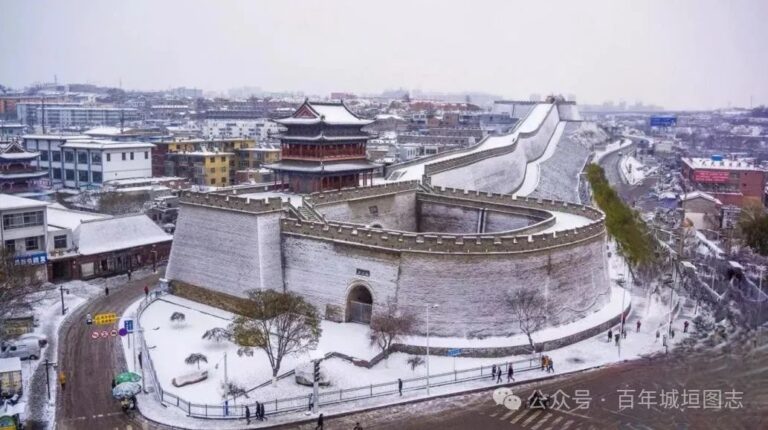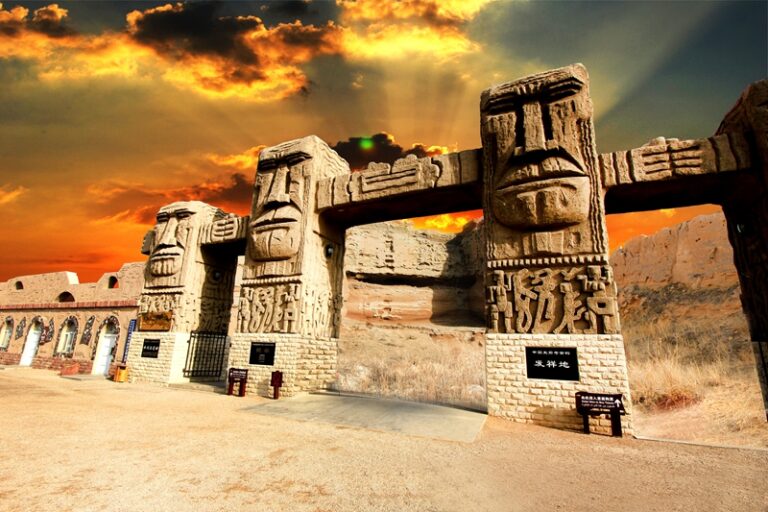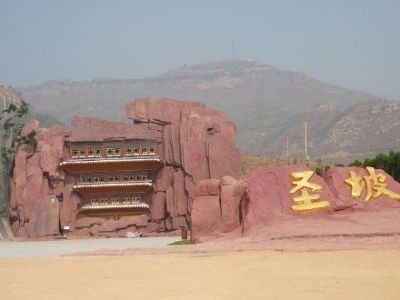Exploring the Natural Beauty of Meizhou Dabu Guangludi: Top Outdoor Activities
An Essential Guide to Visiting Meizhou Dabu Guangludi
In This Guide
- An Essential Guide to Visiting Meizhou Dabu Guangludi
- The Rich History of Meizhou Dabu Guangludi
- Main Highlights: What to See at Meizhou Dabu Guangludi
- Planning Your Visit: A Practical Guide
- Tickets, Hours, and Booking
- How to Get There
- Local Cuisine and Accommodation
- Frequently Asked Questions
- Final Thoughts on Your Trip
Nestled in the picturesque landscapes of Meizhou, Guangdong Province, Meizhou Dabu Guangludi (光禄第) stands as a remarkable testament to Hakka culture and architecture. This historic site, constructed in 1908, serves as the ancestral home of Zhang Bishi, a prominent figure in both the business and political realms during the Qing Dynasty and early Republic of China. Renowned for its grandeur and intricate craftsmanship, Guangludi is an exemplary model of the traditional Hakka walled residence, known as “weidongwu.”
Visitors to Guangludi are not just treated to the impressive facade and spacious interiors; they are also invited to step into a world rich with history and cultural significance. The building showcases a harmonious blend of functionality and artistry, featuring 18 halls, 13 courtyards, and an astonishing 99 rooms, all meticulously arranged to reflect the lifestyle and values of the Hakka people. Its architectural marvel includes intricate wood carvings and golden embellishments, symbolizing prosperity and good fortune.
As a cultural hub, Guangludi also houses exhibitions dedicated to Hakka folk customs and the legacy of Zhang Bishi, offering insights into the life of this influential merchant and patriot. The site is not just a relic of the past; it is a vibrant space where history, culture, and community converge, making it a must-visit destination for travelers seeking to understand the unique heritage of the Hakka people in Guangdong. Prepare to be enchanted as you explore the corridors of Dabu Guangludi, where every corner tells a story of resilience, ambition, and cultural pride.
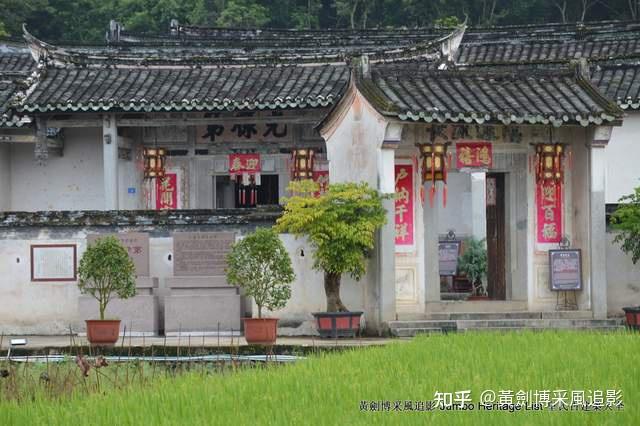
Meizhou Dabu Guangludi.
The Rich History of Meizhou Dabu Guangludi
Meizhou Dabu Guangludi, also known as the former residence of Zhang Bishi, is a remarkable historical building located in Dabu County, Guangdong Province. Constructed in 1908 during the Qing Dynasty, Guangludi represents a significant example of Hakka architecture, characterized by its unique layout and intricate craftsmanship.
Zhang Bishi, the original owner of Guangludi, was a prominent figure in the Chinese diaspora, known for his success in business and significant contributions to the development of modern industry in China. Born in 1841 in Dabu County, he made his fortune in Southeast Asia before returning to China, where he held several influential positions, including consul in Penang and Singapore. His accomplishments earned him the respect of his peers and the title of a leading overseas Chinese philanthropist.
The architecture of Guangludi reflects the cultural and social aspirations of the Hakka community at the time. The building spans an impressive 4,180 square meters and is constructed in a traditional layout with three halls and four wings, typical of the Hakka “walled house” style. It features 18 halls, 13 courtyards, and 99 rooms, providing ample space for family gatherings and social functions. The craftsmanship displayed in Guangludi is exceptional, with elaborate carvings and vibrant decorations that highlight the wealth and status of its original owner.
Inside, visitors can explore the central hall, which served as the main gathering space for family events, adorned with intricate motifs of mythical creatures such as phoenixes and qilins. The adjacent exhibition halls showcase the rich Hakka culture and the history of Zhang Bishi’s contributions to the region, offering insights into the customs and traditions of the Hakka people.
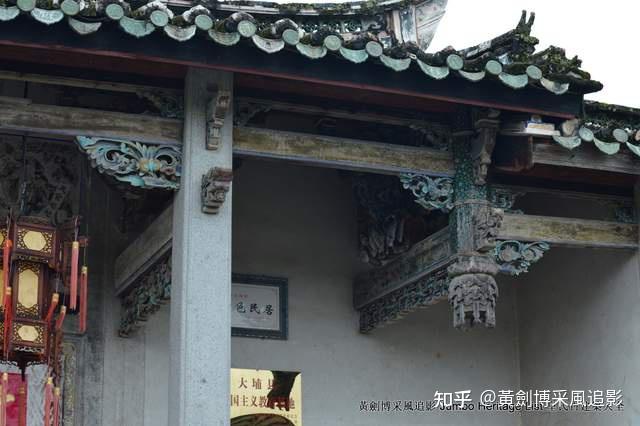
Meizhou Dabu Guangludi.
In recognition of its cultural significance, Guangludi was designated as a national key cultural relic protection unit in 2019, ensuring its preservation for future generations. The site not only serves as a historical landmark but also as a venue for cultural exhibitions, promoting the legacy of the Hakka community and their contributions to Chinese society.
Today, Meizhou Dabu Guangludi stands as a testament to the rich heritage of the Hakka people and the influential life of Zhang Bishi, drawing visitors who are eager to learn about this unique aspect of China’s history.
Main Highlights: What to See at Meizhou Dabu Guangludi
Meizhou Dabu Guangludi, also known as the residence of Zhang Bishi, is a remarkable cultural site that offers an in-depth glimpse into the rich heritage of the Hakka people and the life of one of China’s prominent expatriates. Here are some of the key highlights to explore:
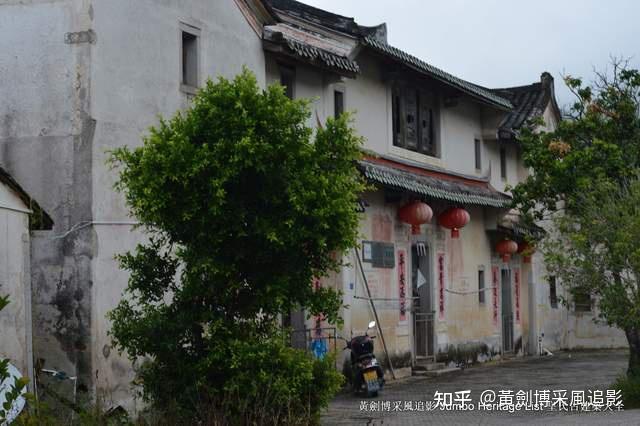
Meizhou Dabu Guangludi.
Architectural Marvel
Constructed in 1908 during the Qing Dynasty, Guangludi is a stunning example of traditional Hakka architecture. Spanning an impressive 4,180 square meters, this grand structure features a unique layout comprising three main halls, four horizontal wings, and a surrounding wall. The intricate craftsmanship, including exquisitely carved wooden beams adorned with golden phoenixes and mythical creatures, showcases the artistic prowess of the era.
Cultural Significance
Guangludi serves as a testament to the life of Zhang Bishi, a famed businessman and patriot who played a crucial role in the development of modern China. Visitors can delve into his legacy through various exhibits that narrate his journey from a young boy in Dabu to a successful entrepreneur with global recognition. The exhibitions within the residence feature photographs, artifacts, and detailed accounts of his contributions to industry and philanthropy.
Hakka Folk Culture
Adjacent to the residence is the Hakka Folk Culture and Zhangyu Wine Culture Exhibition Hall, which highlights the unique customs and traditions of the Hakka community. Here, guests can explore displays of traditional Hakka dwellings and participate in cultural activities, offering an interactive experience that enriches understanding of this vibrant heritage.
Beautiful Gardens
The estate is complemented by serene gardens that provide a peaceful retreat for visitors. These spaces are ideal for leisurely strolls, allowing guests to appreciate the harmonious blend of nature and architecture that defines Guangludi.
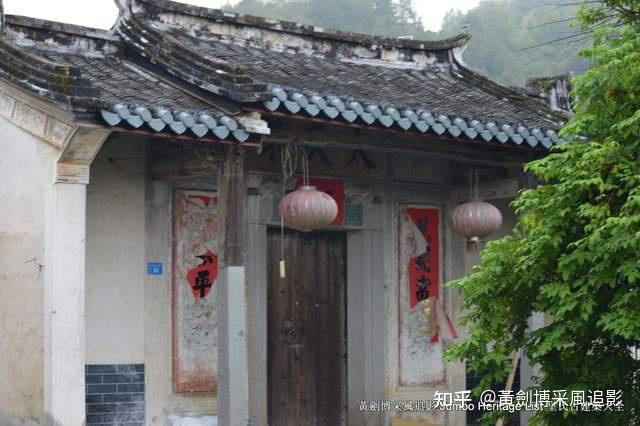
Meizhou Dabu Guangludi.
Historical Context
The significance of Guangludi extends beyond its architectural beauty. It stands as a historical landmark that reflects the socio-economic conditions of the Hakka people during the late Qing Dynasty. The residence has been designated as a key cultural relic, ensuring its preservation for future generations.
Accessibility
Located in Dabu County, Guangludi is easily accessible for travelers interested in exploring the cultural landscapes of Guangdong Province. Whether you’re a history enthusiast or simply seeking to experience the local culture, this site promises an enriching journey into the past.
Exploring Meizhou Dabu Guangludi is not just a visit to a historical site; it’s an invitation to immerse oneself in the legacy of the Hakka people and the enduring spirit of one of their most illustrious sons.
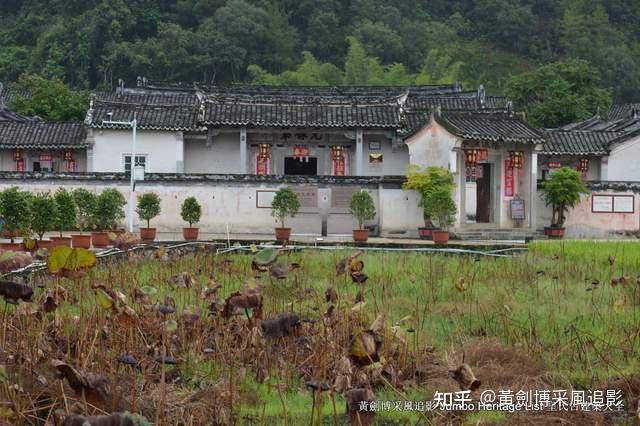
Meizhou Dabu Guangludi.
Planning Your Visit: A Practical Guide
When planning a visit to Meizhou Dabu Guangludi (大埔光禄第), understanding the practical aspects of your journey will enhance your experience. Here’s everything you need to know to make the most of your trip to this cultural and historical gem.
Getting There
Location: Guangludi is situated in Dabu County, Meizhou City, Guangdong Province, China. The site is accessible by various modes of transportation:
-
By Air: The nearest airport is Meixian Airport (MXZ), approximately 60 kilometers away. From the airport, you can take a taxi or arrange for a private transfer to reach Guangludi.
-
By Train: Meizhou Railway Station serves as a major hub. From there, you can take a local bus or taxi to Dabu County. The journey by train from major cities like Guangzhou or Shenzhen typically takes around 2-4 hours.
-
By Bus: Dabu County is well-connected by bus services from nearby cities. Buses frequently depart from Meizhou and other surrounding areas.
Opening Hours
Guangludi is generally open to visitors throughout the week, but it’s advisable to check for any specific holiday hours or closures. Typically, the site opens around 8:30 AM and closes by 5:30 PM. Plan your visit accordingly to ensure you have ample time to explore.
Admission Fees
As of the latest information, admission to Guangludi may vary, but it is often free or has a nominal fee. It’s best to confirm the current fee structure upon arrival or through the official tourism website.
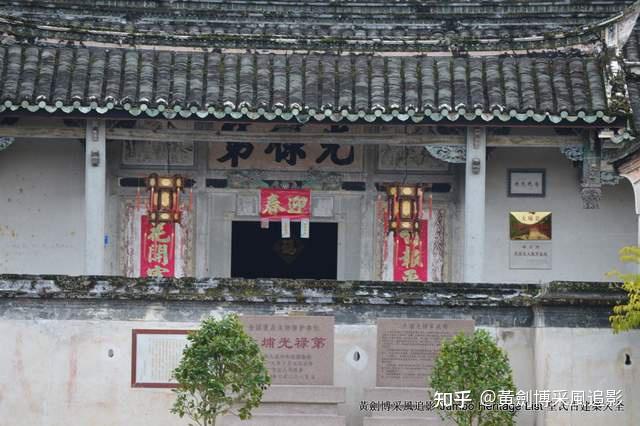
Meizhou Dabu Guangludi.
What to Expect
Guangludi, also known as the former residence of Zhang Bishi, is a classic example of Hakka architecture. The structure features intricate carvings, spacious courtyards, and a layout that reflects traditional Hakka culture. Here are some highlights:
-
Architecture: The building showcases the unique roundhouse design typical of Hakka residences, comprising three main halls and numerous rooms adorned with beautiful wood and stone carvings.
-
Cultural Exhibits: Inside, you will find exhibitions about Zhang Bishi’s life and contributions, including his role in promoting local industry and culture.
-
Gardens: The surrounding gardens add to the serene atmosphere, making it a perfect spot for photography and relaxation.
Nearby Attractions
While visiting Guangludi, consider exploring other cultural sites in Dabu County:
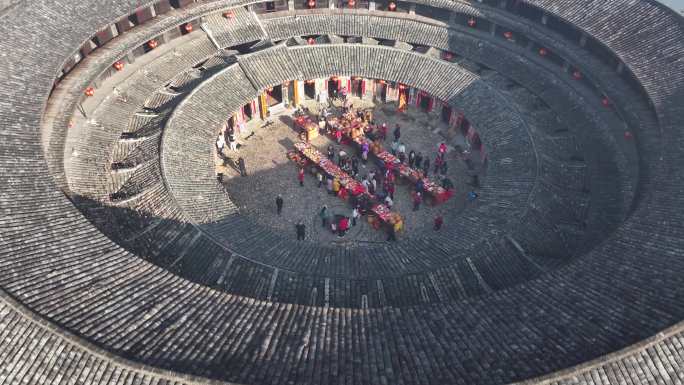
Meizhou Dabu Guangludi.
- Meizhou Hakka Cultural Village: Discover more about Hakka traditions and lifestyle.
- West Rock Mountain (西岩山): A beautiful hiking destination with stunning views and unique rock formations.
- Three Rivers Dam (三河坝): An area rich in history and natural beauty, ideal for a leisurely stroll or a picnic.
Where to Eat
Dabu County offers a variety of dining options, from local eateries serving Hakka cuisine to more upscale restaurants. Be sure to try specialties like Hakka stuffed tofu and various rice dishes.
Accommodation
For a comfortable stay, consider booking a hotel or guesthouse in Dabu County. Options range from budget-friendly accommodations to more luxurious hotels. It’s advisable to book in advance, especially during peak travel seasons.
Travel Tips
- Language: While Mandarin is widely spoken, knowing a few phrases in Hakka can enhance your interactions with locals.
- Cash: Although credit cards are accepted in many places, carrying cash is advisable for small purchases, especially in rural areas.
- Respect Local Customs: Familiarize yourself with Hakka traditions and etiquette to show respect during your visit.
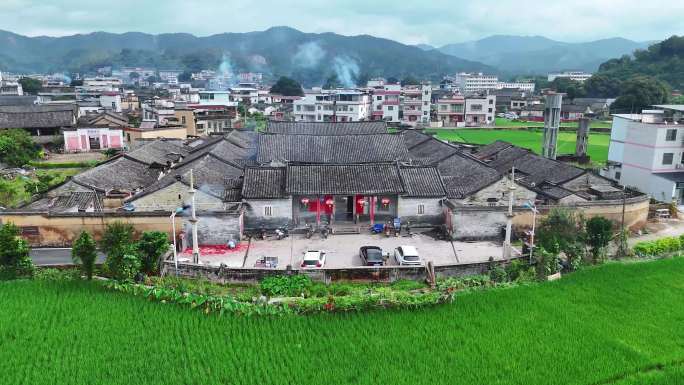
Meizhou Dabu Guangludi.
With these practical tips, your visit to Meizhou Dabu Guangludi will be both enjoyable and enriching, providing a deeper understanding of Hakka culture and history.
Tickets, Hours, and Booking
When planning your visit to Meizhou Dabu Guangludi (光禄第), it’s essential to know what to expect regarding ticketing and entry. This stunning historical site, nestled in the heart of Dabu County, showcases the rich cultural heritage of the Hakka people and the remarkable life of Zhang Bishi, a prominent figure in Chinese history.
Ticket Information
-
Admission Fee: Entry to Guangludi is free, making it an accessible destination for all travelers looking to explore the architectural and cultural significance of this site.
-
Opening Hours: Visit Guangludi from 9:00 AM to 5:00 PM daily. The site is open throughout the week, allowing you to plan your visit at your convenience.
-
Guided Tours: While self-exploration is encouraged, guided tours are available for a more in-depth understanding of the site’s history and significance. These tours can often be arranged on-site or through local tourist information centers.
-
Accessibility: Guangludi is designed to be accessible to visitors, with pathways and facilities that cater to all guests, including those with mobility challenges.
-
Special Events: Occasionally, the site hosts cultural exhibitions and events that may have specific entry requirements or fees. Check local listings or the official Meizhou tourism website for updates on such events during your visit.
Make sure to take advantage of the free admission and immerse yourself in the unique heritage of Guangludi, where history and culture come alive. Enjoy your exploration of this remarkable destination!
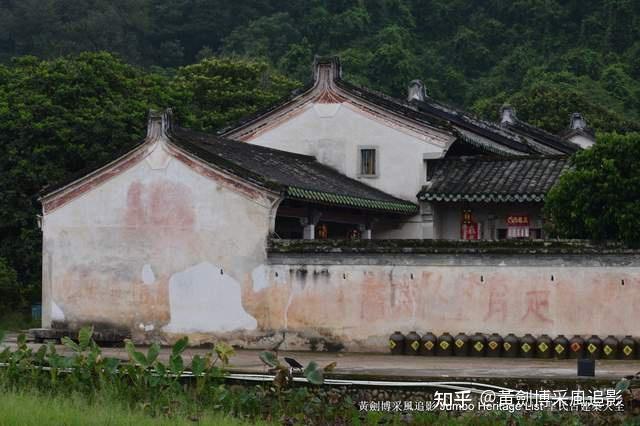
Meizhou Dabu Guangludi.
How to Get There
Getting to and around Meizhou Dabu Guangludi (光禄第) is essential for travelers looking to explore this historic site and the surrounding Hakka culture. Here’s a comprehensive guide to navigating transportation in and around this charming region.
Arriving in Meizhou
By Air:
The nearest airport to Dabu is Meixian Airport (MXZ), located approximately 40 kilometers away. This airport operates flights to several major cities across China, including Guangzhou and Shenzhen. Once you land, you can take a taxi or arrange a shuttle service to reach Dabu County.
By Train:
Meizhou is well-connected by rail, with the Meizhou Railway Station serving as the main hub. High-speed trains from cities like Guangzhou, Shenzhen, and Xiamen can get you to Meizhou in a few hours. From the train station, you can take a taxi or a local bus to Dabu, which is about a 30-40 minute ride away.
By Bus:
Long-distance buses operate frequently from various cities to Dabu County. The main bus terminal in Meizhou offers connections to Dabu, and the journey typically takes about an hour. These buses provide a budget-friendly option for travelers.
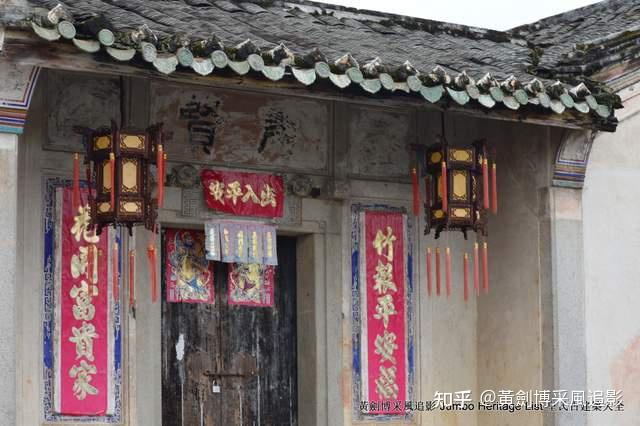
Meizhou Dabu Guangludi.
Local Transportation in Dabu
Public Transportation:
Dabu has a local bus system that connects the main attractions, including Guangludi. Buses are affordable and generally operate from early morning until evening. Be sure to check the latest schedules, as they can vary.
Taxis and Ride-Hailing Services:
Taxis are readily available and are a convenient way to get around Dabu. You can also use ride-hailing apps like Didi Chuxing, which is widely used in China. This service can be especially handy for non-Chinese speakers, as the app allows for easy address input and payment.
Bicycles and Walking:
For those who prefer a slower pace, renting a bicycle can be a delightful way to explore the scenic countryside and nearby attractions. Additionally, many areas around Guangludi are best enjoyed on foot, allowing you to fully appreciate the local architecture and natural beauty.
Exploring Nearby Attractions
When visiting Guangludi, consider exploring other nearby historical sites, such as the Meizhou Hakka Cultural Village and Huaqiao Museum. These attractions can typically be reached via local transportation or by taxi, making them accessible for a comprehensive cultural experience.
Tips for Travelers
- Language Barrier: While some signs may be in English, knowledge of basic Mandarin phrases can be beneficial. Consider downloading a translation app to assist with communication.
- Cash and Payment: While mobile payments like WeChat Pay and Alipay are common, having cash on hand is advisable for smaller establishments.
- Plan Ahead: Some bus and train schedules may change, especially during holidays, so it’s wise to check in advance.
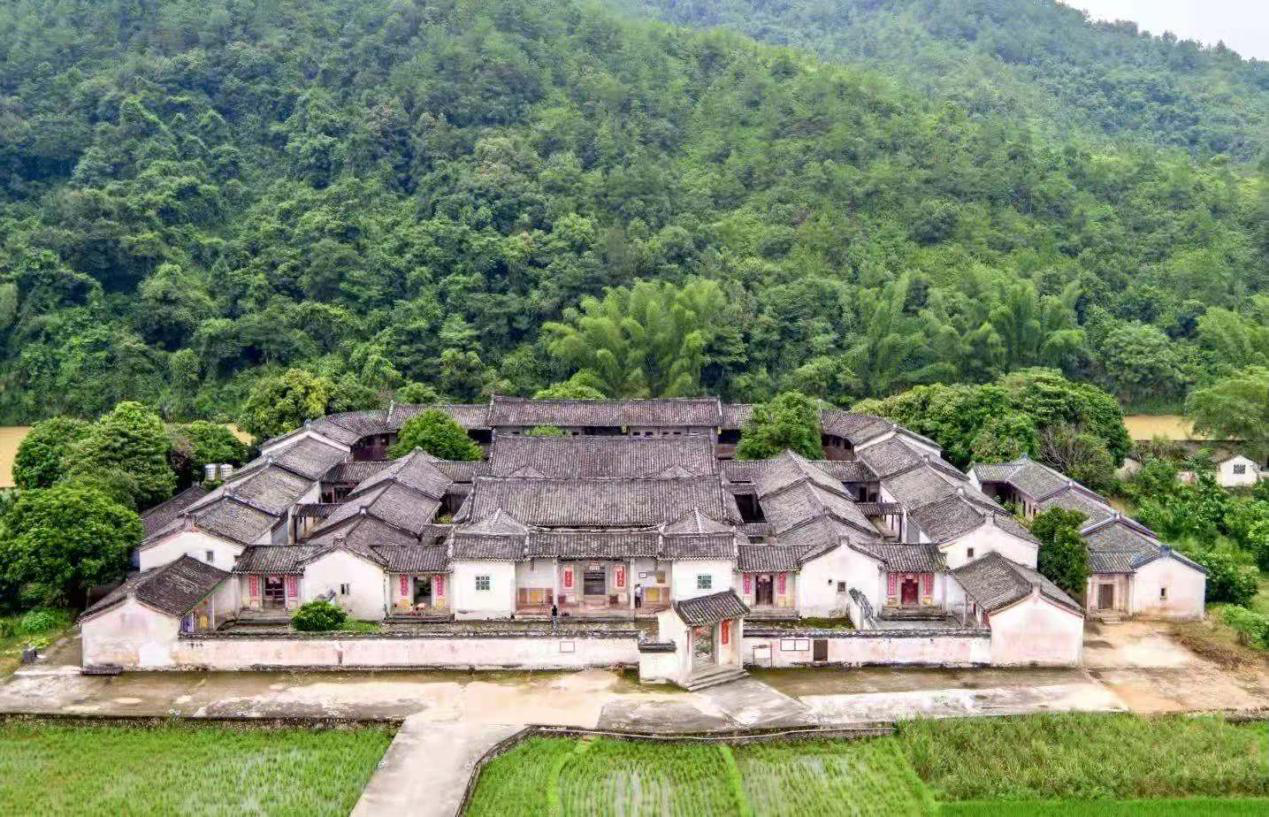
Meizhou Dabu Guangludi.
With this transportation guide, you’ll be well-equipped to navigate your journey to and around Meizhou Dabu Guangludi, ensuring a memorable exploration of its rich history and vibrant culture.
Local Cuisine and Accommodation
When visiting Meizhou Dabu Guangludi, guests can indulge in the rich culinary traditions of the Hakka culture and experience comfortable accommodations that reflect the area’s heritage.
Culinary Delights
-
Dabu Food Street: This bustling street is a must-visit for food lovers. Here, you can sample local Hakka specialties such as Dabu-style roast duck, steamed dumplings, and the famous Hakka stir-fried vegetables. Don’t miss out on trying the Dabu rice cakes, which are known for their chewy texture and delightful flavors. The food stalls offer a vibrant atmosphere where you can enjoy a variety of dishes at reasonable prices.
-
Hakka Cuisine Restaurants: Several restaurants in the vicinity offer authentic Hakka dishes, prepared using traditional methods. Notable mentions include:
- Minju Hakka Restaurant: Known for its flavorful Hakka stuffed tofu and braised pork belly, this restaurant is popular among locals and tourists alike.
-
Xihua Hakka Restaurant: A family-friendly spot that serves a range of dishes, including Hakka noodle soup and spicy pickled vegetables. Their menu caters to all tastes, ensuring a satisfying dining experience.
-
Tea and Snacks: Enjoy a relaxing afternoon at Xiyan Tea Village, where you can sip on locally sourced Oolong tea while snacking on traditional tea cakes and dried fruits. The serene environment and beautiful tea fields enhance the overall experience.
Where to Stay
-
Fengxi Forest Resort: Nestled within a lush natural setting, this resort is perfect for those looking to unwind amidst nature. The resort features comfortable accommodations with modern amenities and offers activities such as hiking and birdwatching. Guests can also enjoy meals made with fresh, local ingredients.
-
Dabu Hakka Guesthouse: This charming guesthouse captures the essence of Hakka architecture. It provides a cozy atmosphere with well-decorated rooms that reflect the local culture. The owners often host cultural evenings, allowing guests to learn more about Hakka traditions while enjoying home-cooked meals.
-
Meizhou International Hotel: For those seeking a more upscale experience, the Meizhou International Hotel offers luxurious rooms, a fitness center, and an on-site restaurant that serves a mix of local and international cuisine. Its central location makes it easy to explore nearby attractions.
With a variety of delectable dishes and comfortable accommodations, your visit to Meizhou Dabu Guangludi promises to be both memorable and satisfying. Whether you’re indulging in local flavors or enjoying the warmth of Hakka hospitality, this destination offers an enriching travel experience.
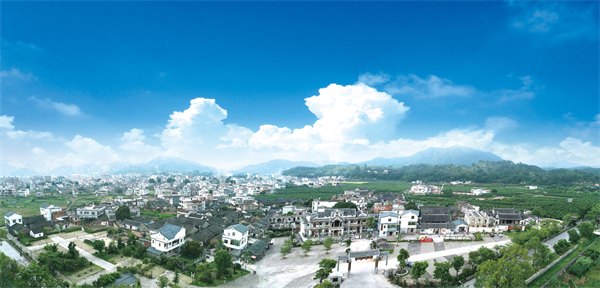
Meizhou Dabu Guangludi.
Frequently Asked Questions
-
What is Meizhou Dabu Guangludi (大埔光禄第)?
Meizhou Dabu Guangludi, also known as the Guanglu Hall, is a historic Hakka roundhouse located in Dabu County, Guangdong Province, China. Built in 1908, it serves as a cultural monument showcasing traditional Hakka architecture and the life of Zhang Bi Shi, a prominent figure in the region’s history. -
How do I get to Guangludi?
Guangludi is situated in Dabu County, which is accessible by bus or car from major cities in Guangdong Province, such as Meizhou or Shenzhen. Public transportation options are available, but renting a car or hiring a taxi can provide a more convenient experience. -
What can I expect to see inside Guangludi?
Inside the Guanglu Hall, visitors can explore intricate architectural features, including 18 halls, 13 courtyards, and 99 rooms. The hall is adorned with exquisite carvings and decorations that reflect the cultural heritage of the Hakka people, as well as exhibits detailing the life and accomplishments of Zhang Bi Shi. -
Is there an entrance fee?
Yes, there is a nominal entrance fee to visit Guangludi. The fee helps maintain the site and its exhibitions. It is advisable to check in advance for specific pricing or any special events that may affect entry costs. -
Are guided tours available?
Guided tours are often available for visitors at Guangludi. These tours provide valuable insights into the history and architecture of the building, as well as the cultural significance of the Hakka people. It is recommended to book in advance, especially during peak tourist seasons. -
What are the opening hours for Guangludi?
Guangludi is typically open from 9:00 AM to 5:00 PM, but hours may vary on holidays or special occasions. Checking the official website or local tourism information is a good idea before planning your visit. -
Are there facilities for visitors?
Yes, Guangludi offers basic visitor facilities, including restrooms and informative displays. There may also be a small gift shop featuring local crafts and souvenirs related to Hakka culture. -
What other attractions are nearby?
While visiting Guangludi, you can explore other nearby attractions, such as the Meizhou Hakka Cultural Village and the historic sites in Dabu County. The area is rich in natural beauty and cultural heritage, making it an excellent destination for a full day of exploration.
Final Thoughts on Your Trip
Visiting Meizhou Dabu Guangludi offers a captivating glimpse into the rich tapestry of Hakka culture and history. This architectural gem, rooted in the legacy of the esteemed Zhang Bishi, stands not only as a testament to the craftsmanship of its time but also as a vibrant hub for cultural exchange and appreciation. As you explore its intricately designed halls and the surrounding cultural village, you’ll find yourself immersed in stories of resilience, innovation, and community spirit that have shaped the region.
This is more than just a visit to a historical site; it’s an invitation to connect with the past and understand the profound impact of Hakka heritage on contemporary life. Whether you are wandering through the elegantly adorned rooms or participating in local customs, the experience at Guangludi is sure to leave an indelible mark on your journey through Guangdong.
As you conclude your exploration, take a moment to reflect on the values of unity and cultural pride that this place embodies. Meizhou Dabu Guangludi is not just a destination; it’s a celebration of the human spirit, encouraging visitors to cherish their own roots while embracing the beauty of diversity.
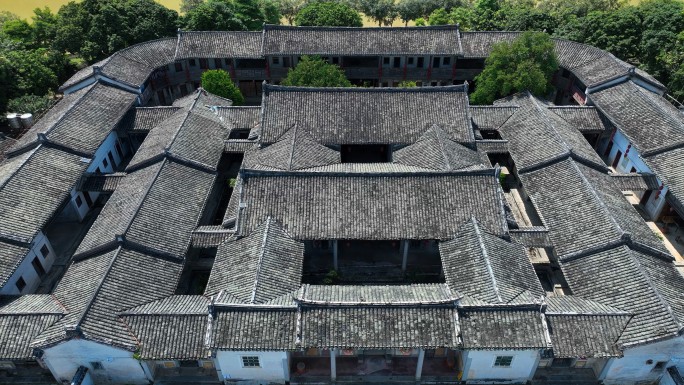
Meizhou Dabu Guangludi.
